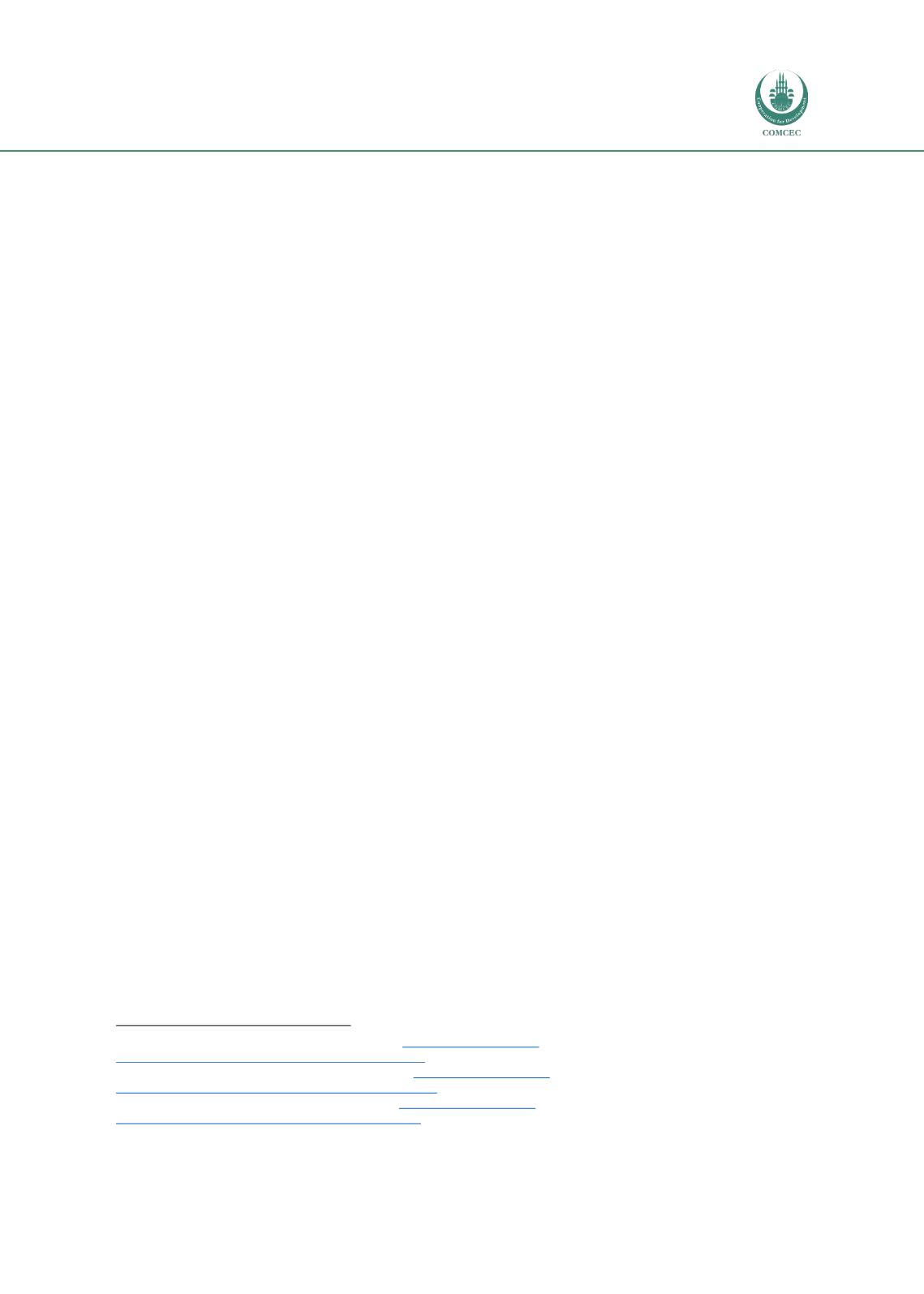

Improving Agricultural Market Performance:
Creation and Development of Market Institutions
147
dominated by smallholders, and the most important sub-sector for realizing the Governments
of Indonesia’s ambition of food self-sufficiency.
452
Moreover, such sector-specific market institutions may also encourage farmers active in the
production of cocoa, coffee, tea, palm oil, and rubber to move up high-value activities within
existing sectors, thereby addressing the bottleneck concerning lack of agricultural value-
addition. A good example in this case where new market institutions could support realizing
this move would be the coffee sector. Indonesia currently exports primarily lower quality
regular coffee beans (i.e. Robusta). However, Indonesia produces several specialty, very high-
quality coffee types such as Iuwak coffee (world’s most expensive type of coffee due to its
labor-intensive processing), Toraja coffee, Aceh coffee, and Mandailing coffee.
453
Newly created commodity-specific market institutions could encourage small-scale farmers as
well as private-owned plantations to expand specialty coffee production through
intensification schemes (e.g. distribution of high-quality fertilizers) and rehabilitation schemes
(e.g. distribution of high-quality seeds and planting materials) to revive old plantations and old
trees. Increasing the quality of coffee production is necessary and can be achieved through
dissemination of market intelligence, risk management, and technological advancements and
innovations. Another important aspect is promoting domestic per capita consumption to
improve the overall domestic market and demand.
Similarly, for the tea sector, the quality of tea and moving into more high-end segments can be
improved, which, eventually, could increase the agricultural marketing system and address
food insecurity.
454
Tea produced in Indonesia’s large-scale plantations is of premium or high-
grade quality while tea produced by Indonesian smallholders, who lack technological
innovation, optimal production techniques, and processing and value-addition activities, is of
low quality. Processing companies, both foreign and Indonesian, typically buy raw tea from
large private-owned or state-owned plantations. However, opportunities for small-scale
farmers certainly exist as Indonesian tea is known for having the world's highest catechin
content (a natural antioxidant).
The creation of such new market institutions may also support the export of other promising
commodities, as the export of promising raw materials is now frequently imposed by SPS
compliance issues. This is for instance the case for nutmeg. Indonesian nutmeg comprised the
bulk of nutmeg into the EU. In fact, cooperation and technical support programs (TSPs) have
been established between the EU and Indonesia to improve the quality of nutmeg and its
market access. The last TSP finished in October 2015. As of January 2016, however, the EU
imposed stricter import regulations on nutmeg.
455
The export of nutmeg to Europe was
challenged due to the presence of fungus, which grows easily as a result of the humidity of
Indonesia’s climate and the lack of quality storage infrastructure in combination with
insufficient diffusion of post-harvest technologies.
456
Mangos exported to Japan and South
Korea face SPS compliance issues linked to the presence of the fruit fly, which can’t be
eradicated due to expensive post-harvest technologies (e.g. heat treatment), which are not
452
Indonesia Investments (2017), Rice, available a
t https://www.indonesia- investments.com/business/commodities/rice/item183[Accessed June 2017].
453
Indonesia Investments (2017), Coffee, available a
t https://www.indonesia- investments.com/business/commodities/coffee/item186 [Accessed June 2017].
454
Indonesia Investments (2017), Tea, available a
t https://www.indonesia- investments.com/business/commodities/tea/item240 [Accessed June 2017].
455
Interview conducted with Ministry of Agriculture in Jakarta, July 13, 2017
456
Interview conducted with Indonesian Quarantine Agency in Jakarta, July 11, 2017


















